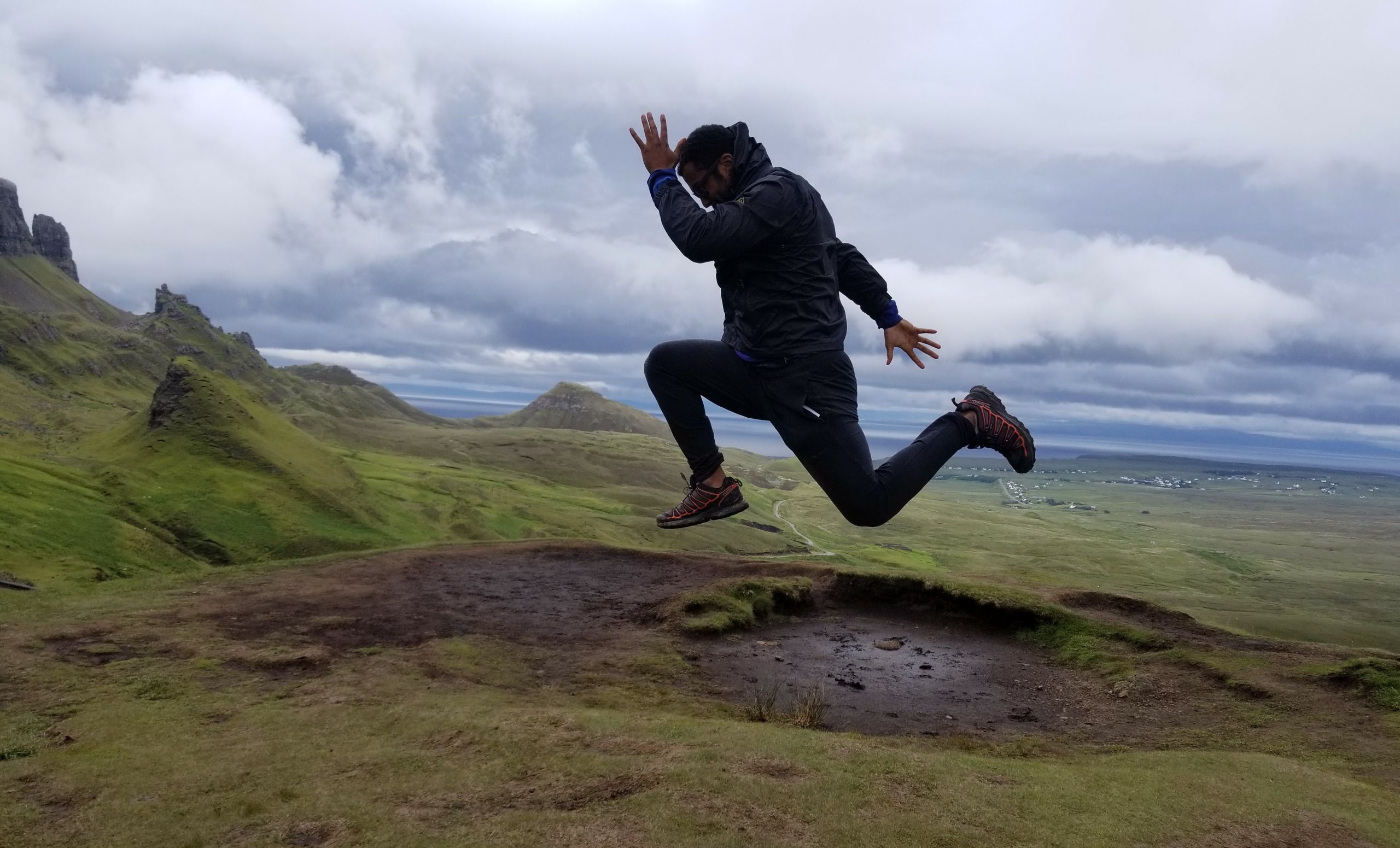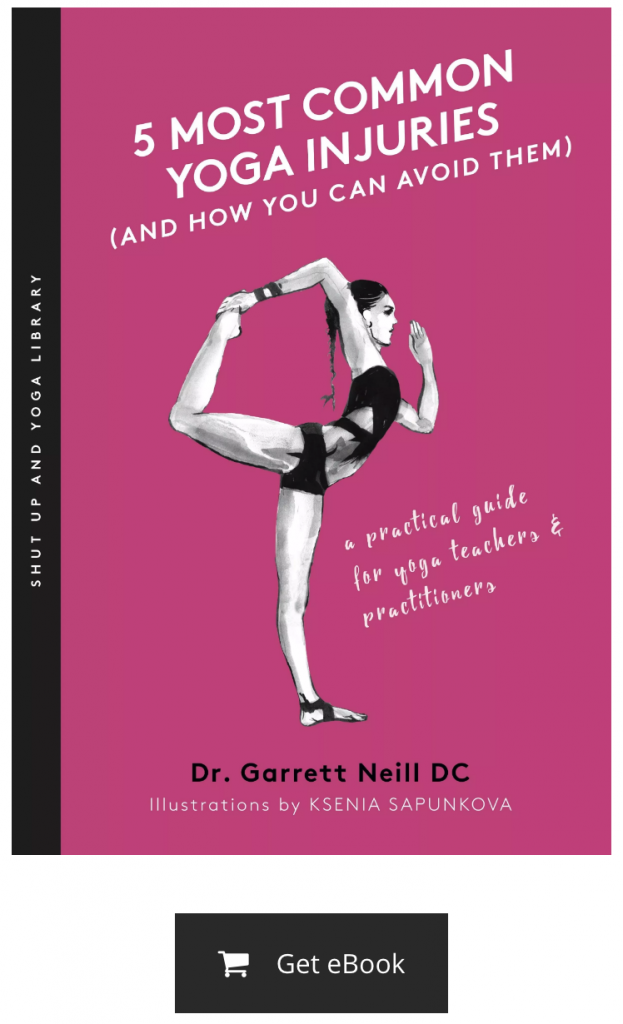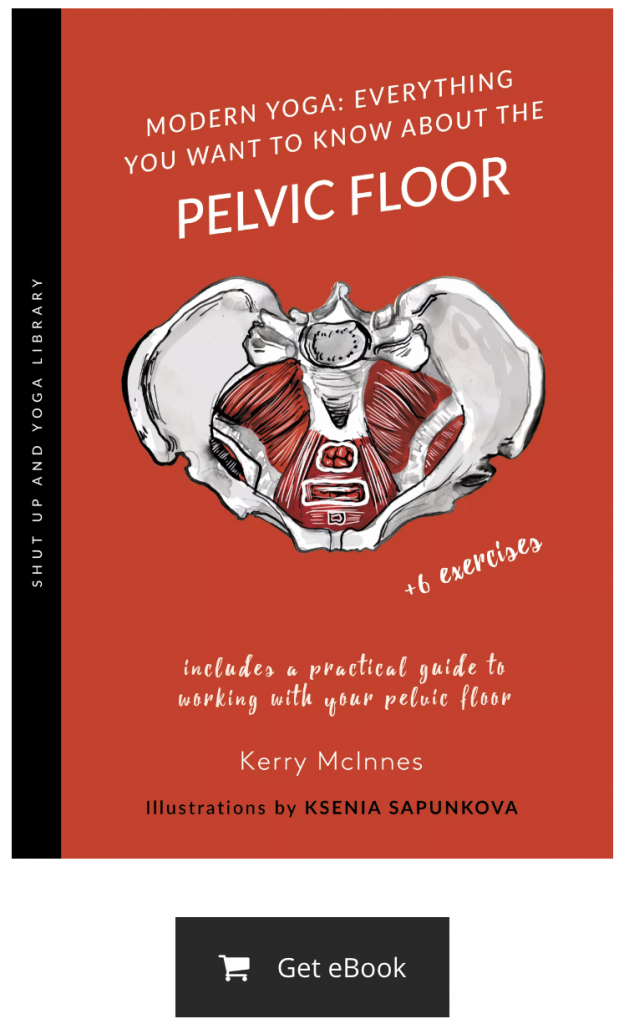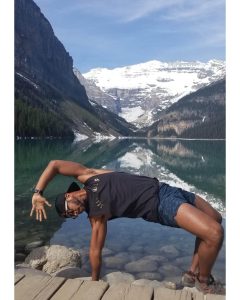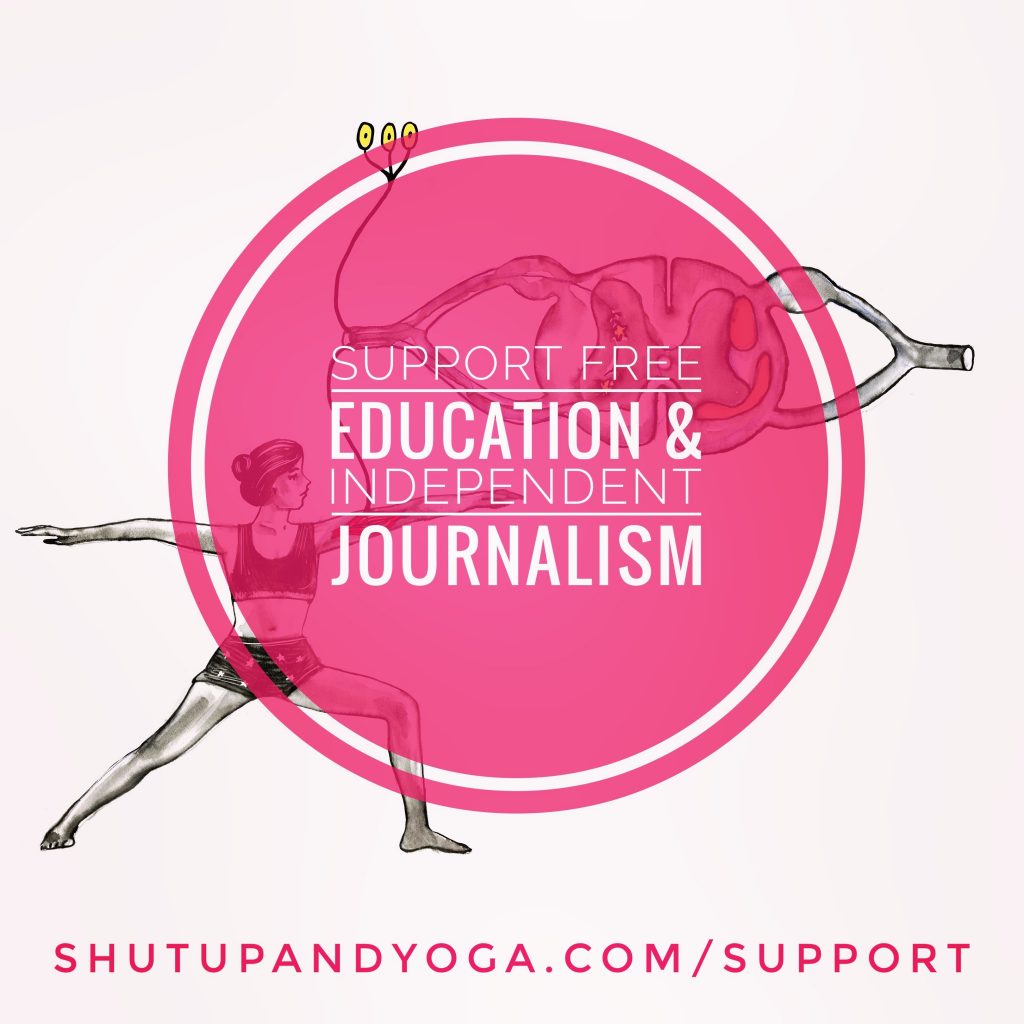@coach_donovan_
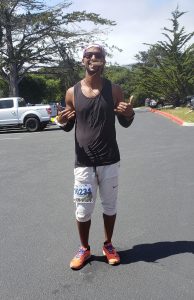
We were delighted to meet Donovan Stewart, curious movement coach and fitness philosopher. In this interview, we discuss (and define!) unconventional training, the cross-roads of functional movement and yoga, but also curiosity, boredom, and expectations. Read on to learn more!
Donovan’s Movement Journey as an Individual & Educator
Can you tell us a bit about your background? What education did you receive, and how has it influenced your movement philosophy? Can you tell us about becoming blind in your right eye has influenced your life and coaching career?
I received a Bachelors in nutrition & exercise science from Queens College (in NYC) in 2015. Since then, I’ve taken several workshops that have shifted my thought process. I originally wanted to become an athletic trainer; now I want to not only help people prevent or recover from injury, but I also want to heal the mind through curiosity.
My eye accident opened the doors to my coaching career. I never wanted athletes to become hurt like I was, to have a crutch, to have a predisposed limit to performance. And if they did, whether they were athletes or people looking to move better, I would support them into overcoming it time and time again.

I want to not only help people prevent or recover from injury, but I also want to heal the mind through curiosity
You mention how you got into “unconventional” kinds of training because you got bored. Can you tell us a little about that adventure? What do you mean by “unconventional”?
I got bored with the traditional, lift a barbell, and put it down antics. I got really strong, really fast using machines, barbells, and dumbbells but I was doing the same thing all the time. I switched it up by adding more running into my regimen, but I was still bored. I started to use kettlebells and experimented with my own personal training and fell in love. I researched kettlebell training and came across steel maces, steel clubs, and martial arts. I studied all three of those and got a basic understanding and now use them for skill learning and something to always work towards.
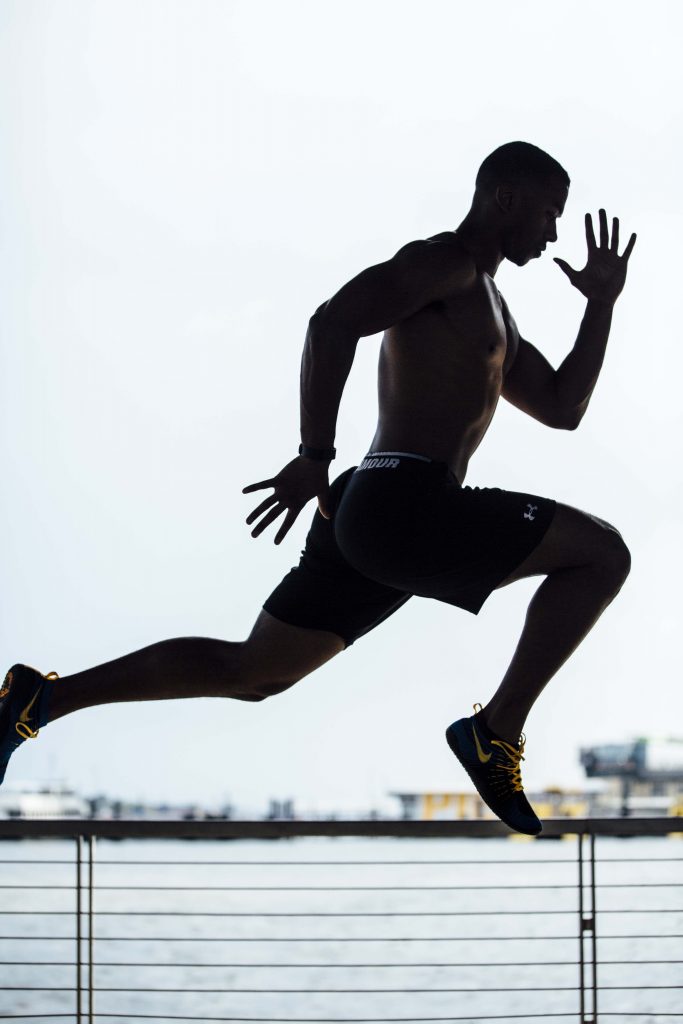
For skills learning I mean that, for example, I’ll use steel maces/clubs for offset training (weights far away from the body to force people to engage more of their core and body awareness). I’ll also use martial arts for coordinating the upper and lower body, not for self-defense or fighting purposes but to connect mind and body fully. I call it unconventional because if I walk into a gym and start swinging a steel mace around a gym, just about every person around me will be in awe.
So, what does your movement practice look like?
My movement practice consists of a lot of bodyweight training in terms of mobility, running and movement games. I also love to use kettlebells, I’ve practiced so much with them at the start of my career, I can’t imagine a day going by without swinging a bell once.
What’s your goal through coaching?
My goal is to provide a space for people to feel comfortable working towards their goals no matter who they are, pain-free and through curiosity. I want to invite them to see what works, what doesn’t, and encourage them to appreciate the result of such exploration because they get to try something new.

What role does social media play in your coaching endeavors? How do you use it and how has it influenced your life?
I use social media to come across movement games, new styles of training, and to get in touch with other coaches who inspire me. From time to time, I do get lost into the vortex of comic book and video game randomness, but social media influenced my life to what it is today. It’s led to life-changing experiences and helped me discover my style of coaching.
What do you think functional movement really is? We love what @beardthebestyoucanbe (on Instagram) and the way he highlights how the word “functional” might have become meaningless lately. What’s your view on that?
Who’s to say that we all live the same exact life and need the same movement patterns?
Amir @beardthebestyoucanbe and I actually met at a workshop last year and shared very similar ideas on what functional movement is. I do believe functional training has no meaning anymore. In my eyes, functional training was created to get everyone to a base level according to one person’s standard. But who’s to say that we all live the same exact life and need the same movement patterns? Does every 35 y/o male wake up at 6:12 am every day to get some quiet time before his kids wake up and he preps them for school? My view on functional training is that every person has their own functional training, and it’s up to the individual or coach to figure out what that actually means.
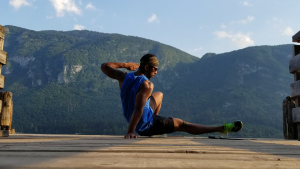
Functional Movement Meets Yoga
What’s your relationship with yoga?
I practice yoga at least once a month. I use a lot of poses in my own practice because they feel great. I’m really keen on liking a yoga instructor, and back in NYC I loved practicing with Mellisa Chung, and since moving from NYC to LA, I haven’t found an instructor I resonate with YET.
How do you think yoga and functional movement can be bridged? Why do you think it’s important that they are bridged?
I think yoga and functional movements can be bridged for an individual’s own lifestyle and goals. If someone who trains at the gym wants stronger shoulders, I can think of a lot of different poses that could add to a workout session. Besides, not only can yoga be used for recovery, but it can also support someone’s mindset when they’re training for a goal. I think it’s very important because having just one kind of practice to reach specific goals will take longer than having two that complement each other.
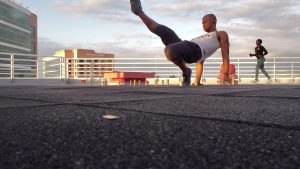
What do you think there is too much of in movement classes (gym classes, yoga, running, team sports, etc.)? Not enough of?
I think there are too many gym and studio classes for people to take. The variety is amazing, but we also don’t need to overcomplicate things when it comes to movement. Do we really need underwater cycling?
I don’t think there are enough classes promoting curiosity, frustration, and fun.
What could be your advice for yogis looking to add diversity to their practice? What do you think would add to their growth in terms of physical yoga? What approaches to movement do you think would be beneficial to explore?
I personally love it when yogis who set an intention for the class and make it about the students rather than about them. Since moving to LA, I’ve felt in a Yogi’s self-practice session vs. my own. I like to be engaged and I’d like to understand the Yogi’s intention for me during the class.
As for growth, to explore outside of yoga and play with some different styles of movement is a great way to expand as an educator and practitioner. I’ve come across Yogis who studied martial arts and some who use weights and I can tell their practice is more engaged. A great practice to study is Capoeira or FRC; both of these are completely different from yoga yet so similar. Having these in your toolbox is absolutely great for students in the class.
The Role of Mindset in Building a Healthy Body
You mention how the world of fitness and movement is very stuck on labels, and this is also true in the world of yoga (even if it’s not fitness per se, it has been very focused on the asana part) where lineage is an important part of the practice. What’s your opinion on that? Do you think labels benefit us? If not, what approach to movement might be more valuable?
Labels play a small role in helping people decide what they want to do — like picking a functional movement coach over a Crossfit coach. But in all reality, the person teaching should own up to what they do and leave it there. What I mean by that is, the person teaching through a specific lens or approach most likely, didn’t create it, which means the teacher is forever a student in that discipline. There’s nothing wrong with being a student, it allows more connection in the movement practice.
Someone teaching through a specific lens or approach most likely, didn’t create it, which means the teacher is forever a student in that discipline.
You said how “People are scared to try other things because they see what could happen, but we don’t know anything, right?” What do you mean by “they see what could happen”? How do you think fears can be overcome? How does that relate to the way you coach/teach/approach movement? (maybe moving is a way to get out of your head and out of your fears…?)
Social media is a beautiful yet cruel entity. What I mean by “they see what could happen” is related to influencers who show only one side of their practice.
Many women seeing a man lifting weight are scared to try it simply because they don’t want to get big which, in reality, is a hard task. Many men I know don’t want to try yoga because they think they’ll be judged, while deep down I think many want to give yoga a shot.
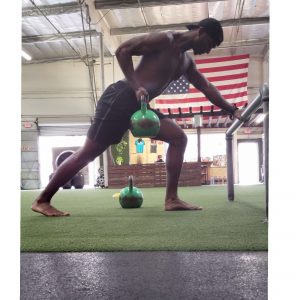
We create stories and fear around everything that isn’t comfortable purely because we don’t want others to think differently of us. I think we can overcome movement fears by finding friends who share the same thoughts and try them together. First timers in classes I teach bond together and always come together; that’s how fear is easily overcome! When it comes down to my coaching, I explain what’s happening and what can happen over time. I try to be as transparent as possible, and if a person isn’t feeling what I’m sharing, I’m okay with that. What I teach isn’t for everyone, but I do suggest trying it a handful of times before deciding.
Relating to the previous question, you seem to be very dedicated to breaking the patterns of your life, shifting paradigms, and it seems like introspection is very important. Can you tell us a bit about that? Why do you think it matters to spend time inwards, and what shapes and forms going inwards take for you?
We know almost everywhere in the world has seasons. The weather changes, animals flock to different parts of the world, plants grow older, babies are born, our insides cycle through their processes daily or monthly, and so much more.
There’s no such thing as a constant in the world we live in, except for the fact we’re getting older.

Knowing that, I try to change something drastic in my life yearly. Either in my movement practice, my intentions for the year, my knowledge, or whatever else I see is no longer working with me. To go inward and see what’s working and what’s not requires a little bit of help. I have an amazing support system that I discuss life, pray, and just reflect with. This includes my mom, girlfriend, and the tribe of people who completed or have gone through a leadership program called ALA. The combo of those people supports me in amazing ways. We can’t do it alone.
What’s your view on change?
Change is so good! It allows us to see the beauty in the world. If we stay in place, how will we impact the world? Even the best scientists travel or meet new people to change up what they’re doing.
How do you view intuition? What place does it take in your daily life? Do you use it at work, in your coaching, too?
I’m very intuitive, I really try to go after what my heart tells me to do. Sometimes, it’s not the best choice, but I learn regardless. If we reject our mind, over time it will reject us. I’m an intuitive eater and mover. If I want something, I’ll get it, but if I know it won’t serve me for my vision, I’ll decide on why this won’t work for me. When it comes to coaching, I make decisions the same way. If I can tell something isn’t working, I shift. If my clients or class isn’t entertained or want to try something different, I shift things up and create a new moment.
Boredom vs. Curiosity – you talk about boredom and curiosity, and we believe the two are linked, that they might even be the same thing but phrased differently. What’s your view on that? What value do boredom and curiosity hold for you? How does that show up in your own movement practice and coaching?
I’ve never thought about boredom and curiosity as the same thing. When really thinking about it, I see how if one is bored there they are searching for more and curiosity is peaking. I always viewed my curiosity as my striving to learn more so I can work with anyone and everyone with openness. When I focus on one thing, I may get really good at it, but eventually, I get bored. Haha, this question is GREAT!
Rest and unplugging: We noticed you did “unplugged” week without social media, and you also talk about being in nature and immersed in the moment. Can you share why you think it’s important to unplug, what it adds to your life and work, and your favorite ways to unplug?
Unplugging really grounds me with my daily task and my vision for the year.
Unplugging is beyond helpful in my everyday tasks. I set up a whole process to make sure I don’t go cold turkey. Generally, when we cut things out completely, we relapse badly! I will start by putting time limits on my screen time to eventually cut it all out. From there, I go 1-2 weeks without social media and slowly integrate it into the new habits I formed without it. Right now, I use social media only 5 minutes a day unless I’m making a post for my business.
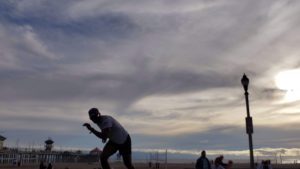
Unplugging really grounds me with my daily task and my vision for the year. As for going into nature, not only does it feel good, but it allows us to ground back into our bodies. When we hear the sounds of the earth, naturally our mind relaxes, our body drops into relaxation, and it’s hard to leave nature upset. My favorite way to unplug is go trail running. Leave the phone in the car and just go!
Just for Fun
What are three IG accounts you like to go check out even if their posts don’t appear in your feed?
@firstrun – This is a modern running magazine run by my favorite runner, Knox Robinson. He travels and runs himself, he has run culture written all over it. Moving to LA, his post reminds me of what running in NYC can be and how I can bring that to the west coast.
@mvng.project – a page run by Mike Ramos, who created a community around movement in NYC. He challenges everything that we know in the gym and creates curiosity in those who are looking to shift their mindset.
@fightingmonkey – they are the epitome of shocking the system in terms of fitness. They created a practice anyone can do and learn from. Their posts help me think outside of the box for everything I do in terms of movement.
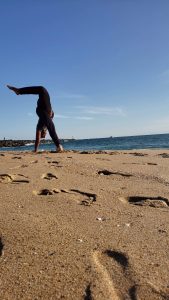
A book/movie/TV show/podcast that changed your life?
A book that changed my life was Born to run. It showed me running isn’t always competitive, it allowed me to view running with a new eye. Running is spiritual and a way of life to so many people around the world, and if I want to connect to those runners and people, I get to feel the same. And a movie that really got me going was 3100: Run & Become.
Favorite music to move to?
My favorite type of music to move to is Jazz! It really gets me going.
Check out Donovan’s Instagram for more and his website.
Photos: courtesy of Donovan Stewart
Edited by Ely Bakouche
